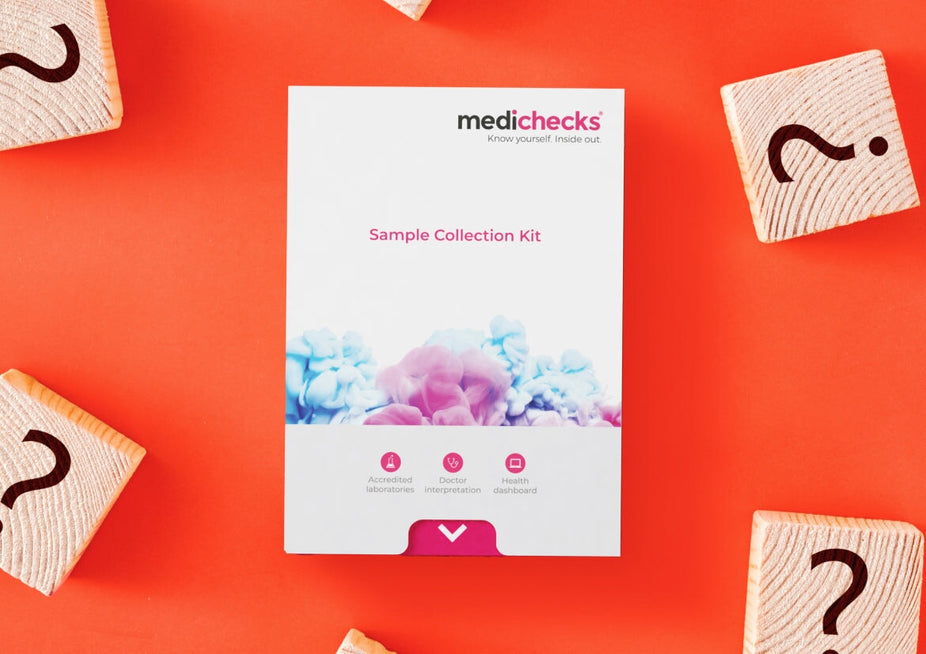Everything you need to know about the endocrine glands
From diabetes, your sleep-wake cycle to your immune function, these endocrine glands are vital to long-term health.
Find out about the endocrine glands that help metabolise food for energy, govern your circadian rhythm and turn your immature immune cells into mature, disease-fighting T cells.
- Pancreas – what does it do, what can go wrong?
- Pineal gland – what does it do, what can go wrong?
- Thymus – what does it do, what can go wrong?
Pancreas – what does it do, what can go wrong?
What is the pancreas?
The pancreas is an abdominal organ that is responsible for producing enzymes that aid digestion as well as producing the hormones insulin and glucagon to regulate blood sugar [1].
- Insulin - Insulin is produced by the beta cells of the pancreas when blood sugar (glucose) levels rise after eating and is necessary to get glucose from the blood into cells for energy. Insulin attaches to the body’s cells which “unlocks” them to absorb glucose. Insulin also enables excess glucose to be stored in the liver for future use.
- Glucagon - Glucagon is produced by the alpha cells of the pancreas when it senses that blood glucose levels are too low. It signals to the liver to release stored glucose into the bloodstream while at the same time reducing glucose consumption by the liver to retain as much as possible in the blood.
What can go wrong with the pancreas?
1. Type 1 diabetes
The main condition that affects the ability of the pancreas to produce hormones is an autoimmune condition called type 1 diabetes [2].
Type 1 diabetes occurs when the body’s immune system attacks the beta cells in the pancreas and impairs its ability to produce insulin. Type 1 diabetes is different from type 2 diabetes, which normally develops later in life and is caused by the body’s cells becoming resistant to the effects of insulin. In both types of diabetes, glucose levels in the blood can become dangerously high, known as hyperglycaemia.
What are the symptoms of diabetes?
- Extreme thirst
- Frequent urination
- Fatigue
- Weight loss
- Blurred vision
- Slow-healing wounds
- Impaired immunity
How is diabetes diagnosed?
Diabetes is normally diagnosed through a test to measure the amount of glucose in the blood or urine.
A blood test may measure glucose levels after a fast overnight or may measure the amount of glucose that has attached the haemoglobin in the blood which gives a better long-term picture of blood glucose levels.
Type 1 diabetes is commonly diagnosed in childhood, whereas type 2 diabetes is more commonly diagnosed in older adults and is usually lifestyle-related – associated with obesity, a sedentary lifestyle, and poor diet.
How is diabetes treated?
People with type 1 diabetes will need to take insulin to control their blood sugar for the rest of their lives. In its early stages, type 2 diabetes or prediabetes may be controlled through lifestyle changes, in particular weight loss, a low-calorie diet, and exercise.
Medications to lower blood sugar may also be prescribed (e.g., metformin). The longer someone has type 2 diabetes, the higher the probability that they will progress to need insulin to control their blood sugar in the future.
Pineal gland - what does it do, what can go wrong?
What is the pineal gland?
The pineal gland is a small gland situated deep in the brain which is shaped like a pine-cone (from which it gets its name) [3]. The pineal gland governs the circadian rhythms of the body through the production of the hormone melatonin.
What hormone does the pineal gland produce?
Melatonin - Melatonin is responsible for governing the sleep-wake cycles of the body. It is sensitive to light, switching off production in daylight to promote wakefulness and producing higher levels when it is dark which promotes sleep. Night-time levels of melatonin are at least ten times greater than during the day.
What can go wrong with the pineal gland?
The pineal gland can develop benign cysts and sometimes tumours. Pineal tumours are very rare but are most frequently diagnosed in children and adults under 40 years old. They normally require surgery to remove them.
What can affect melatonin levels?
The main factor affecting melatonin production is light at night; even the dim light caused by a phone or computer in the bedroom can affect melatonin production.
Overproduction or underproduction of melatonin can affect the sleep cycle and impact mood.
Other causes that can affect melatonin levels include:
- Chronic stress
- Poor diet
- A diet low in tryptophan (an essential amino acid from food)
How is low melatonin treated?
Melatonin can be treated by making improvements to lifestyle, such as:
- Managing stress
- Removing any source of light from the bedroom
- Eating foods rich in tryptophan (such as seeds, pulses, chocolate, oats, dates, and dairy products)
- Taking melatonin supplements - often used by people who fly frequently to manage jet lag
Thymus gland - what does it do, what can go wrong?
What is the thymus gland?
The thymus is both an endocrine (hormone-producing) and lymphatic gland [4]. It is glandular tissue located in the upper body behind the breastbone in the thoracic cavity.
The thymus has an important role in immune function and is responsible for training T cells to fight infection by bacteria, viruses, and fungi. T cells are also important in protecting the body against cancer. It is most active during childhood and by puberty, the body has almost all the T cells it needs.
The thymus continues shrinking through adulthood with glandular tissue being replaced by fat.
What hormone does the thymus gland produce?
The thymus produces thymosin, a hormone that stimulates the development of T cells.
What can go wrong with the thymus gland?
Problems with the thymus gland are usually associated with its immune function as opposed to its endocrine function.
One disease that can affect the thymus gland is cancer. There are two main types — thymomas and thymic carcinomas. They’re more common in people over 50, but both are very rare conditions.
Just under one in three people with thymomas have other conditions such as myasthenia gravis (MG). MG is a rare condition that affects the immune system and causes muscle weakness.
Thymomas are also linked to other diseases, such as:
- Red cell aplasia
- Pernicious anaemia
- Hypogammaglobulinaemia (a type of immune deficiency)
- Lupus
- Rheumatoid arthritis
Where next?
Learn more about other glands and their role in hormone health:
- The hypothalamus
- The pituitary gland
- The adrenals
- The gonads
- The thyroid and parathyroid glands
- Hormone blood test buying guide
References
- Pancreatic Cancer Action Network. 2022. What is the Pancreas?. [online] Available at: <https://www.pancan.org/facing-pancreatic-cancer/about-pancreatic-cancer/what-is-the-pancreas/> [Accessed 12 July 2022].
- Nhsinform.scot. 2022. Type 1 diabetes symptoms and treatments. [online] Available at: <https://www.nhsinform.scot/illnesses-and-conditions/diabetes/type-1-diabetes> [Accessed 12 July 2022].
- Aulinas A. Physiology of the Pineal Gland and Melatonin. [Updated 2019 Dec 10]. In: Feingold KR, Anawalt B, Boyce A, et al., editors. Endotext [Internet]. South Dartmouth (MA): MDText.com, Inc.; 2000-. Available at: <https://www.ncbi.nlm.nih.gov/books/NBK550972/>
- Cleveland Clinic. 2022. Thymus: The Function of the Gland & Why it is Important. [online] Available at: <https://my.clevelandclinic.org/health/body/23016-thymus#:~:text=Your%20thymus%20is%20a%20small,your%20T%2Dcells%20before%20birth.> [Accessed 12 July 2022].








